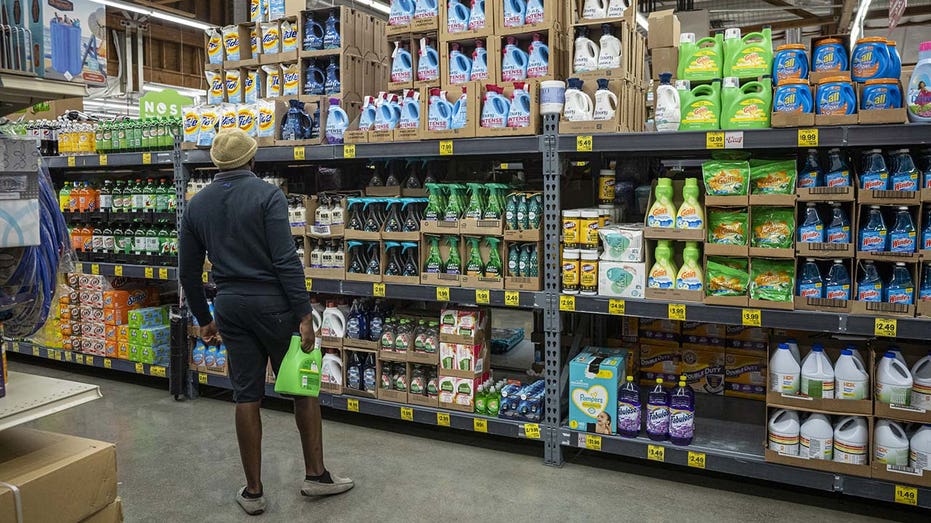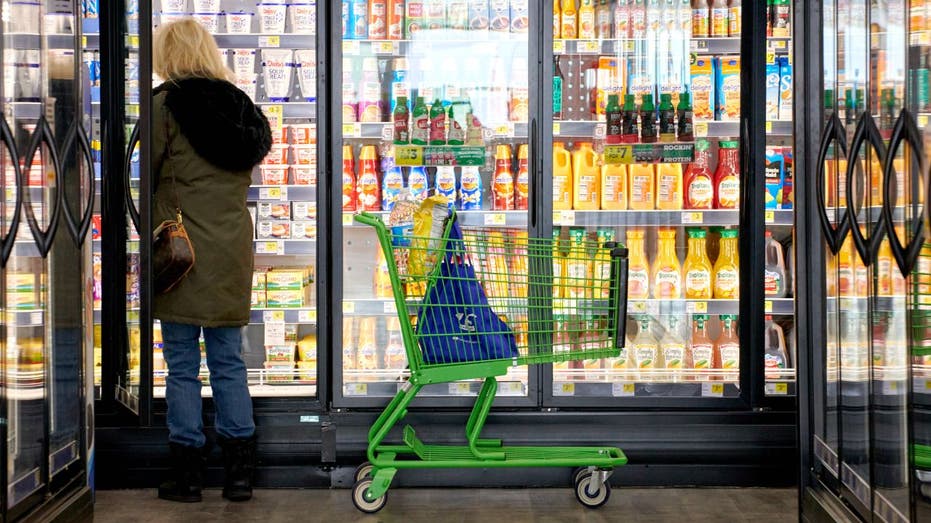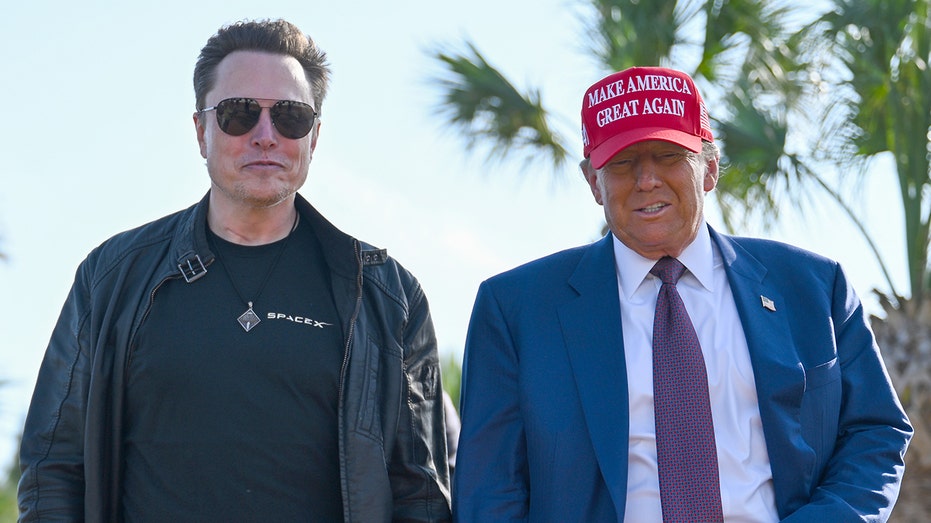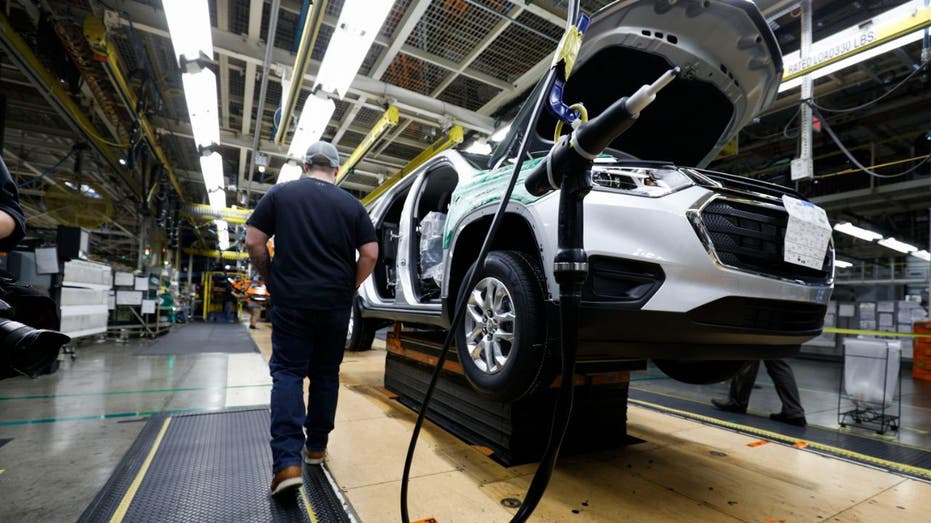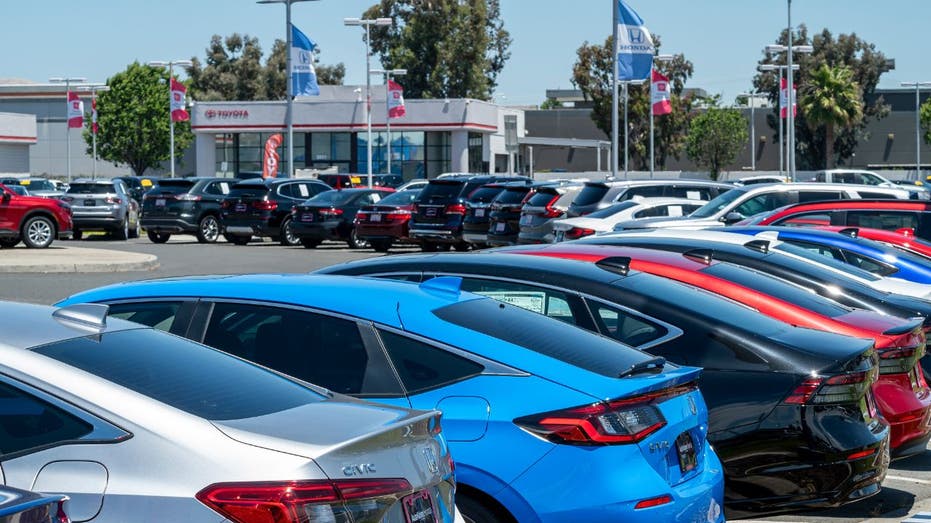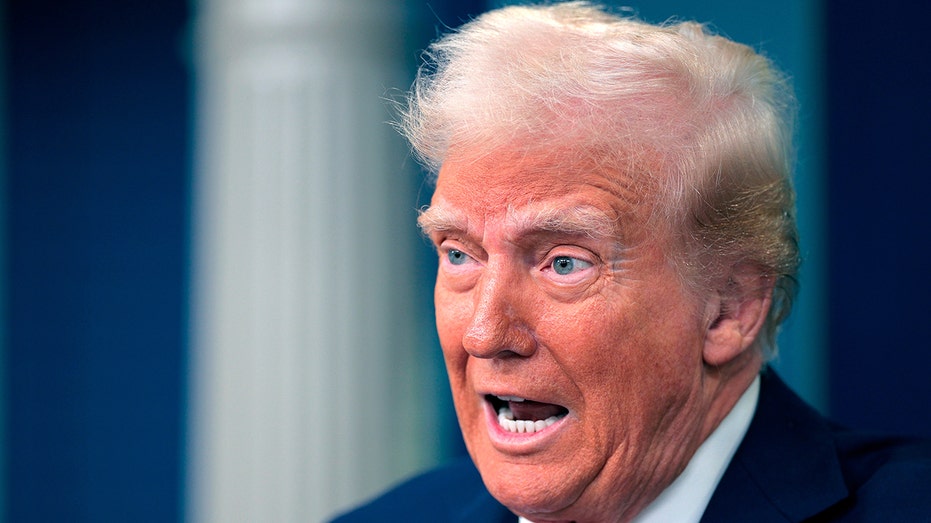Economist Steve Moore and former member of White House Council of Economic advisors Tomas Philipson discuss President Donald Trump’s tariffs on foreign countries on ‘The Bottom Line.’
Multiple Canadian provinces are planning to remove American-made alcohol from store shelves in response to sweeping tariffs imposed by President Donald Trump.
On Saturday, Trump signed off on additional 25% tariffs on Canadian and Mexican imports, which goes into effect Tuesday, as well as a 10% tariff on Chinese goods. Energy resources from Canada will have a lower 10% tariff, according to the White House.
In response, Nova Scotia Premier Tim Houston said the Nova Scotia Liquor Corporation will remove all U.S. alcohol from store shelves starting Tuesday, including beer, wine, spirits and coolers.
MEXICO AGREES TO DEPLOY 10,000 TROOPS TO US BORDER IN EXCHANGE FOR TARIFF PAUSE
President Donald Trump talks with Canadian Prime Minister Justin Trudeau during a G-7 Summit welcome ceremony, Friday, June 8, 2018, in Charlevoix, Canada. (AP Photo/Evan Vucci / AP Images)
In a statement, Ontario Premier Doug Ford said that he told the Liquor Control Board of Ontario to pull U.S. alcohol from stores starting Tuesday.
“Every year, LCBO sells nearly $1 billion worth of American wine, beer, spirits and seltzers. Not anymore,” Ford said. “Starting Tuesday, we’re removing American products from LCBO shelves. As the only wholesaler of alcohol in the province, LCBO will also remove American products from its catalogue (sic) so other Ontario-based restaurants and retailers can’t order or restock U.S. products.”
In an interview with Global News, British Columbia Premier David Eby said he directed the B.C. Liquor Distribution Branch to stop purchasing American liquor from Republican-led states.
HOW TRUMP’S TARIFFS CLOSED THE LOOPHOLE USED BY CHINESE RETAILERS
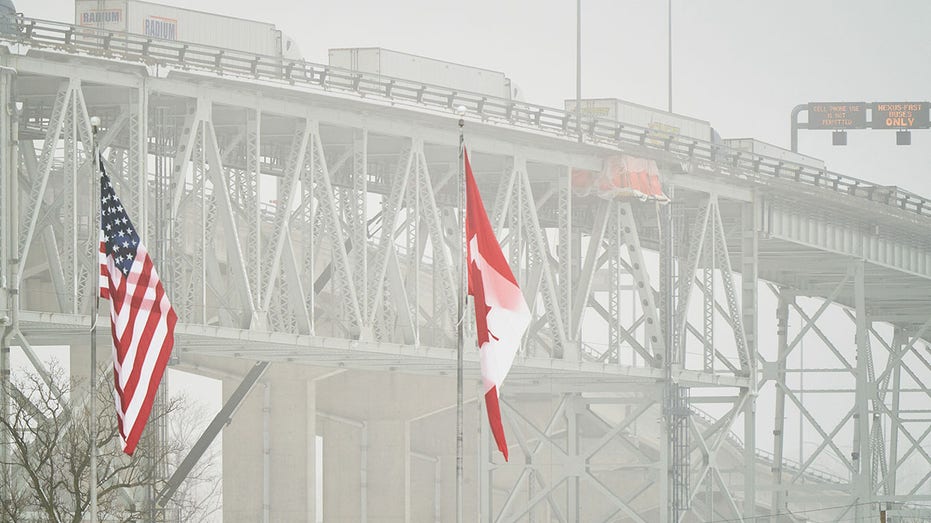
Trucks pass over the Blue Water Bridge at the border crossing with the US in Sarnia, Ontario on Monday. President Donald Trump said he will discuss the punishing tariffs he has levied on Canada and Mexico with both countries on Monday, after arguing (GEOFF ROBINS/AFP via Getty Images / Getty Images)
Manitoba Premier Wab Kinew called Trump’s tariffs “an attack on Canadians.”
“We support the federal response to these tariffs and here in Manitoba, we’re stopping the sale of American products at Manitoba liquor marts,” he said. “How you choose to spend your money is one of the most important decisions you as a consumer can make. There are plenty of great Manitoba breweries and distilleries to support instead.”
Kinew directed the Manitoba Liquor and Lotteries (MBLL) to stop the sale of American products in the province and to pull American products off the shelves of liquor marts and stop ordering American alcohol.
Quebec Premier François Legault said his province will fight the tariffs, the CBC reported. He said his government has asked the liquor board, the Société des alcools du Quebec (SAQ), to remove all American products from its shelves starting Tuesday.
Canadian Energy and Resource Minister Jonathan Wilkinson on the relationship with the U.S., and trade conversations between Prime Minister Trudeau and President Donald Trump.
“Today, Mr. Trump has decided to attack us. We have to stand up, we have to fight to protect our economy, to protect our jobs,” Legault told reporters Saturday night, the report said.
Trump has long blamed Canada and Mexico for failing to prevent the flow of illegal immigrants and drugs into the United States and has said both countries take advantage of U.S. trade policy.
GET FOX BUSINESS ON THE GO BY CLICKING HERE
In exchange for a one-day delay of the tariffs, Mexico has agreed to deploy 10,000 troops to the southern border, Mexican President Claudia Sheinbaum said Monday. Trump and Sheinbaum spoke on Monday and agreed that Mexico will do more to combat drug trafficking into the U.S., and that the U.S. will step up efforts to block the flow of firearms into Mexico.
Trump and Canadian Prime Minister Justin Trudeau were expected to speak Monday.


